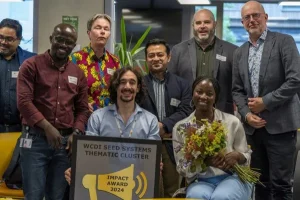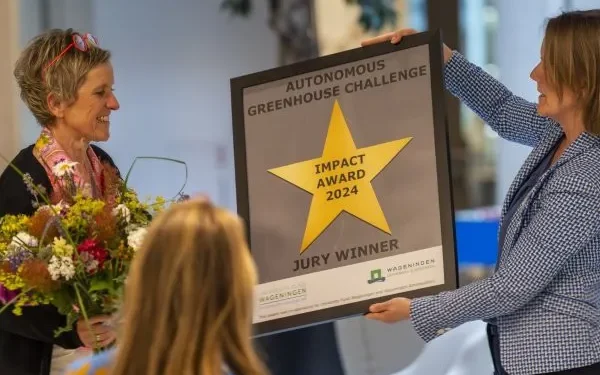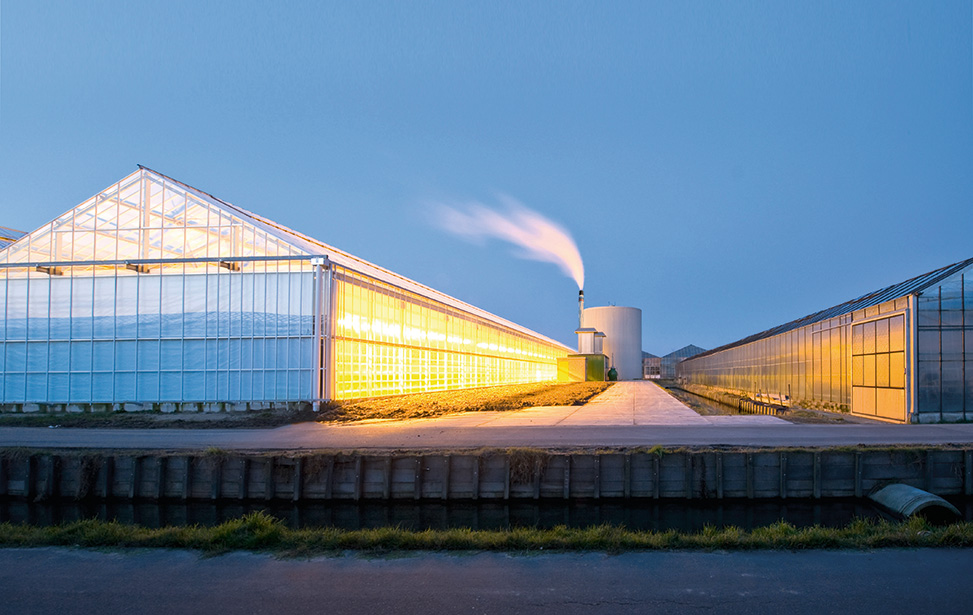Wageningen University & Research (WUR) recently announced the winners of its 2024 Impact Awards, celebrating outstanding contributions to sustainable agriculture and food systems. Among the notable achievements, the Autonomous Greenhouse Challenge was honored with the Jury Impact Award for its pioneering approach to integrating artificial intelligence (AI) in greenhouse management. This prestigious recognition underscores the project’s potential to reshape the future of controlled environment agriculture (CEA).
The Autonomous Greenhouse Challenge: A Vision for Sustainable Food Systems
The Autonomous Greenhouse Challenge, a standout project from this year’s WUR Impact Awards, was recognized for its innovative efforts to tackle some of the most pressing challenges in agriculture. The competition, which received significant attention from both the jury and the public, spotlighted the Autonomous Greenhouse Challenge as a leading example of how technology can drive sustainable practices in greenhouse environments.
Key Highlights of the Autonomous Greenhouse Challenge:
- AI-Driven Greenhouse Management: At the core of the Autonomous Greenhouse Challenge is the application of artificial intelligence to optimize greenhouse operations. By leveraging advanced AI algorithms, the project aims to automate critical functions such as climate control, irrigation, and pest management. This technological approach not only enhances operational efficiency but also significantly reduces resource consumption and environmental impact.
- Sustainable Food Systems: The challenge addresses fundamental issues in modern agriculture, such as space limitations and resource scarcity. By automating greenhouse processes, the project seeks to create scalable and sustainable food production systems that can be implemented in diverse environments, from urban settings to remote agricultural areas.
- Impactful Innovations: The project was praised for its ambitious goals and tangible impact. The jury recognized the Autonomous Greenhouse Challenge for its ability to integrate cutting-edge technology with practical solutions for greenhouse management. This innovative approach sets a new benchmark for how AI can be harnessed to achieve environmental sustainability and food security.
- Global Influence: The success of the Autonomous Greenhouse Challenge is also a testament to the global reach of Wageningen University’s initiatives. The project’s impact extends beyond the local context, offering a model that can be adapted and scaled to address agricultural challenges worldwide. As noted by jury member Richard Harrison, “With this project, the world can come to Wageningen,” highlighting its international significance.
- Future Plans: Silke Hemming, a representative of the Autonomous Greenhouse Challenge team, expressed enthusiasm for the future of the project. The team plans to use the €5,000 prize from the WUR Impact Award to further advance their initiatives and continue making a significant impact in the field of controlled environment agriculture.
Opportunities for Investors and Industry Professionals
For investors and industry professionals in the agricultural sector, the Autonomous Greenhouse Challenge offers several promising avenues for engagement and exploration:
- Technological Advancements: The project’s focus on AI-driven solutions presents opportunities for investment in agricultural technology. Investors can explore avenues to support further development and commercialization of AI tools for greenhouse management.
- Sustainable Practices: The Autonomous Greenhouse Challenge exemplifies how technology can be used to promote sustainable agriculture. Professionals interested in eco-friendly farming methods can learn from the challenge’s approach to resource efficiency and environmental stewardship.
- Market Potential: The success of the Autonomous Greenhouse Challenge indicates a growing market for innovative greenhouse technologies. Investors and entrepreneurs can capitalize on this trend by exploring new business models and products that align with the principles of sustainable agriculture.
- Global Collaboration: The project’s international appeal offers opportunities for global collaboration. Investors and businesses can explore partnerships with organizations and institutions involved in similar initiatives to expand their reach and impact.
Conclusion
The 2024 WUR Impact Award for the Autonomous Greenhouse Challenge highlights the potential of AI and innovative technologies to drive advancements in controlled environment agriculture. As the project continues to evolve, it presents valuable opportunities for investors, industry professionals, and environmental advocates to support and engage with cutting-edge solutions for sustainable food production.











